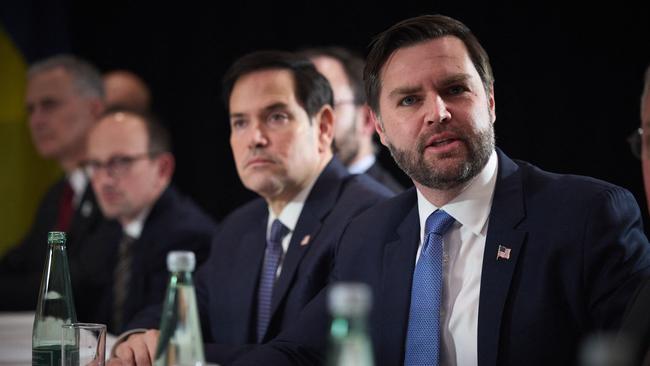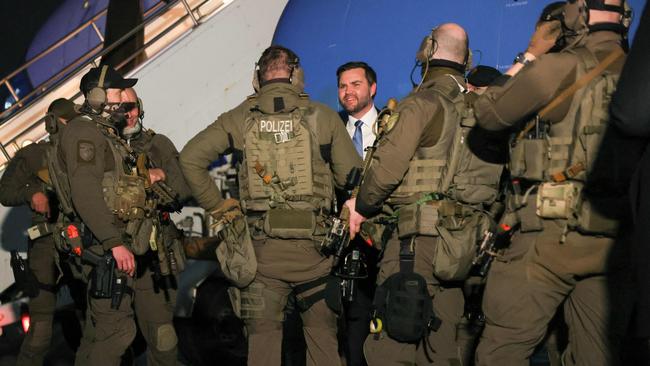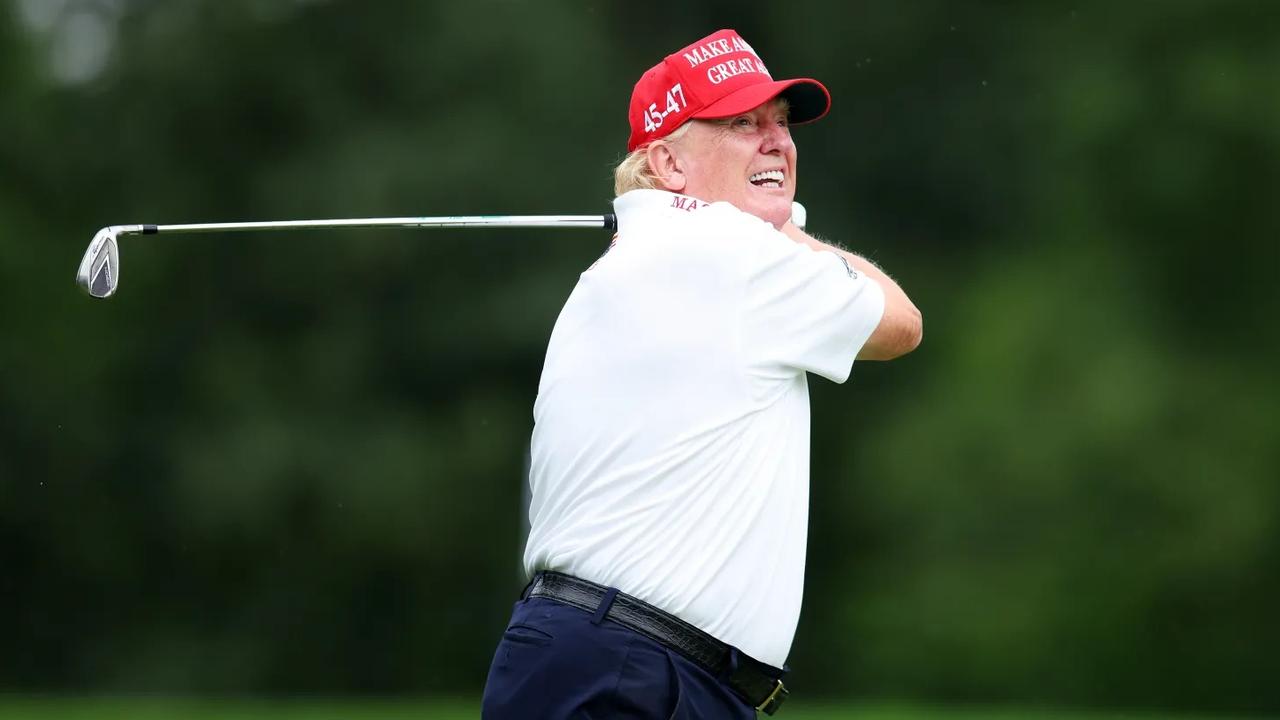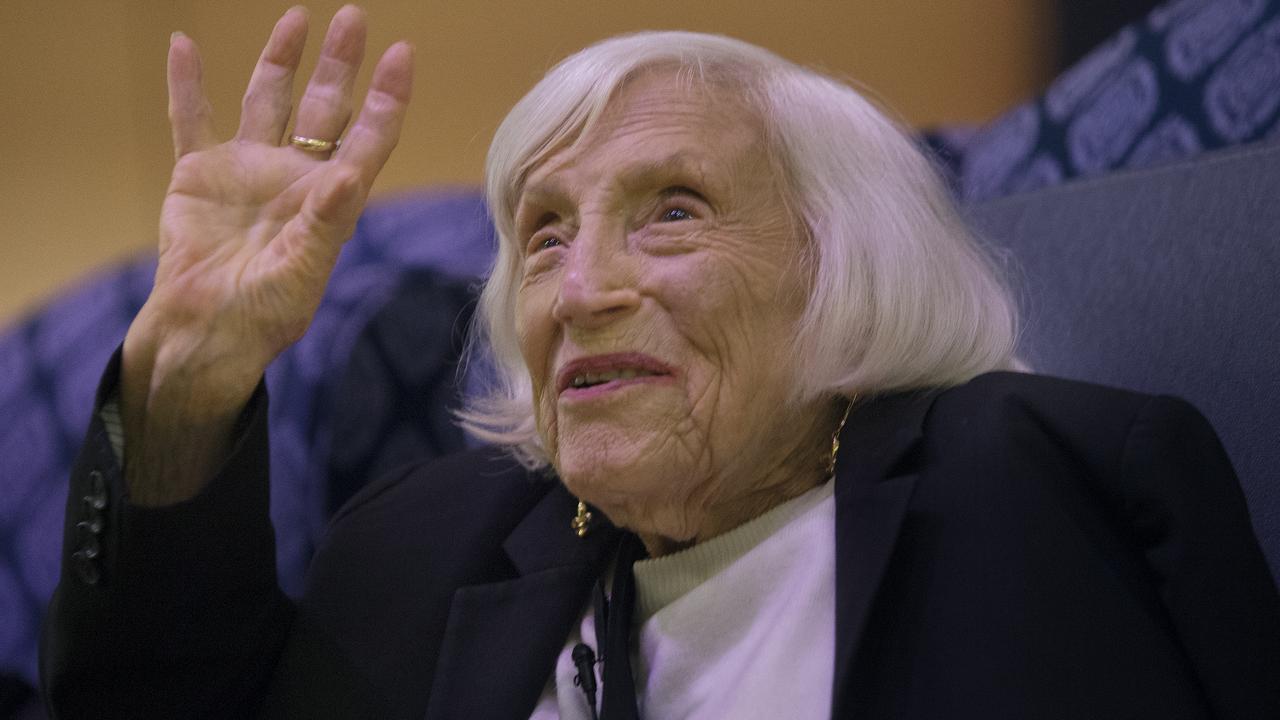European leaders fear Vance, Musk want ‘extremist alliance’
There is a fear that JD Vance’s Munich speech was an opening gambit in a campaign by the Trump administration to refashion Europe in its own image.

The US Vice-President’s attack on European states for “retreating from the fundamental values” of the West heralds a new era of hostile American interference in Europe’s domestic politics, officials fear.
JD Vance castigated Britain, Germany, Sweden, Romania and other countries at the Munich Security Conference at the weekend for supposedly smothering dissent, censoring social media and refusing to allow hard-right parties into government.
He told them the gravest danger to their societies was not Russia or China but their own establishments.
His remarks were widely seen as ushering in “essentially the end of the post-Cold War liberal order we know”, said Aleksandra Uznanska-Wisniewska, a rising star of Polish politics.
Behind the scenes, however, there is mounting concern that the speech marks something more significant and specific: an opening gambit in a campaign by the Trump administration to refashion Europe in its own image.
“This is actively advocating and building an extremist alliance across the Atlantic,” one European government source said. “I would definitely see it in more alarming terms than somebody who is just freewheeling because he has nothing to say on security.
“They are meddling in European democracy and they are willing to turn it in their direction. We knew the Kremlin did this but up to now we’d never seen the White House try and do it here, let alone in Germany.”

Diplomats said they were still trying to work out the intent behind Vance’s words. Some feel the speech was primarily aimed at a US audience or meant to gain Donald Trump’s attention.
They also struggle to read the balance of power between the various factions competing to steer American foreign policy.
Yet officials from three European countries said they were seriously alarmed that Mr Vance and Elon Musk appeared to be driving an aggressively interventionist agenda towards Europe with the President’s blessing.
“We certainly don’t underestimate the significance of this statement,” one said. “They are trying to effect a significant change, including in governments. It’s not irrelevant. There’s an ideology and a philosophy that sits behind it. They want to see changes in Europe.”
“The idea of the West as it has existed for the last 60 or 70-odd years certainly is in suspense, and that’s the optimistic way of putting it,” an official said. “They are carving up the world into spheres of influence. We fall in the American sphere of influence and they feel that means we have to do whatever they say.”
The most exasperated public response came from Germany, where Mr Musk and Mr Vance have been concertedly boosting the hard-right Alternative for Germany (AfD) party and demanding it be brought into a coalition government after the Bundestag election next Sunday.
Amid a ferocious campaign, riled by a series of killings by foreigners, the Christian Democratic Union party under Friedrich Merz, the probable next chancellor, has already tested the “firewall” against the AfD by relying on its votes to pass a motion on curbing illegal immigration. In Munich, he lined up with Chancellor Olaf Scholz and Germany’s foreign and defence ministers to emphatically reject Mr Vance’s demands and criticisms.
“The spirit of this speech fundamentally changes the trans-Atlantic relationship as it has been up to now. It practically turns it on its head: from America as a protecting power almost to an adversary,” said Norbert Rottgen, a senior CDU MP and former cabinet minister.
Hans-Peter Bartels, a former German armed forces commissioner, said the speech was seen in Berlin as “supercilious, arrogant, smart-alecky and completely inappropriate”.
Other observers said the implications went far beyond Germany. A diplomat from one EU country said the Vance-Musk approach was reminiscent of an abortive campaign by former Trump adviser Steve Bannon to build a pan-European far-right insurgency, but this time with the weight of the White House behind it. “They are willing to do it in Britain too,” the source said. “They are willingly supporting autocratic parties and financing them. They are willingly supporting (far-right activist) Tommy Robinson as a pinnacle of democracy and making Nigel Farage look like a moderate.”
It remains unclear whether the pressure will be confined to the Oval Office and X, Mr Musk’s social media platform, or whether the US might use more consequential tools to get its way.
Michael Sfraga, an American diplomat and scientist, said targeted tariffs would be “first on the list” of instruments. “I think people should take this very, very seriously,” he said.
But German foreign policy analyst Ulrich Speck doubted any campaign to instigate a hard-right takeover of European capitals would work. “Europe’s right is not united and there is a lot of anti-Americanism,” he said. “Bannon failed when he tried to turn Europe into the breeding ground for his movement. Musk and Vance may be intrigued by that idea but it won’t fly.”
The Times



To join the conversation, please log in. Don't have an account? Register
Join the conversation, you are commenting as Logout